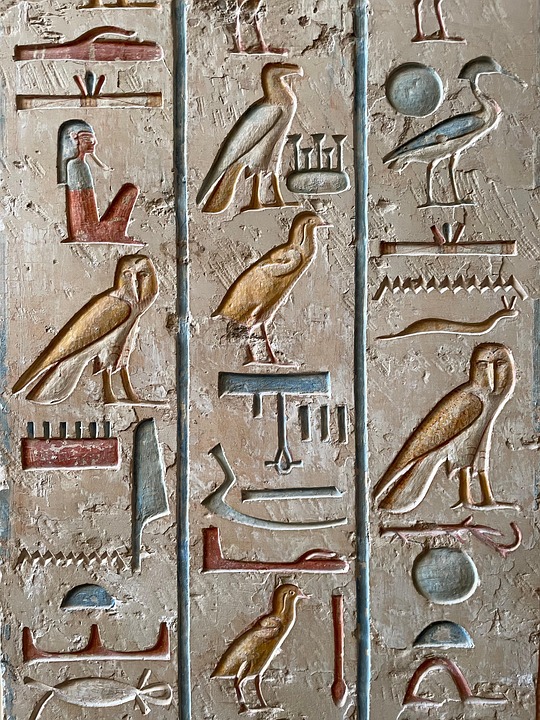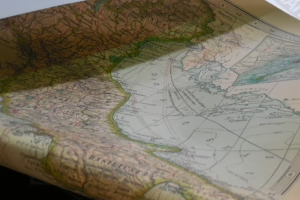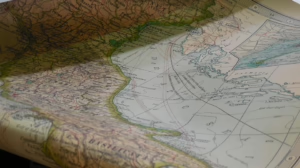The Battlefields of Time: How War Shaped Nations and Identities
War has always been an integral aspect of human history, shaping the destinies of nations and molding the identities of peoples. The "Battlefields of Time" offer rich narratives that illustrate how conflict has not only redefined geographical borders but has also significantly influenced cultural, social, and political identities. From ancient conquests to modern warfare, the scars of conflict have left indelible marks on the collective consciousness of societies.
Historical Context
Throughout history, wars have been waged for territory, resources, and ideological supremacy. The Roman conquests expanded the empire’s reach across Europe, North Africa, and the Middle East, facilitating a blend of cultures that would significantly influence the development of Western civilization. The spread of the Latin language, Roman law, and engineering prowess transformed various societies, creating a common European identity that would persist through the centuries.
In more recent history, the World Wars of the 20th century served as profound turning points. They not only redrew national boundaries but also fostered new ideologies and national identities. The aftermath of World War I saw the dismantling of empires such as the Austro-Hungarian and Ottoman empires, giving rise to new nations with diverse populations that often struggled to forge cohesive identities. World War II further transformed the world, creating a stark division between East and West and laying the groundwork for the Cold War’s ideological battle, which shaped global politics for decades.
War and National Identity
Wars often catalyze the formation of national identity. The American Revolutionary War became a rallying point for the colonies, fostering a sense of unity and shared purpose among diverse groups of people. Through conflict, the fledgling nation crafted a narrative of freedom and democracy that continues to define American identity today.
Similarly, the unification of Germany in the 19th century was driven by a series of wars led by Otto von Bismarck. These conflicts not only consolidated the various German states under Prussian hegemony but also cultivated a nationalist sentiment that emphasized shared language, culture, and history. This newfound identity would later influence Germany’s role in future conflicts and its evolution as a modern nation-state.
Conflict and Social Transformation
War has also been a powerful agent of social change. The Civil War in the United States redefined the nation’s identity, challenging deeply entrenched ideologies surrounding slavery and states’ rights. The outcomes of this conflict instigated social movements and legal reforms that would shape American society for generations. The Civil Rights Movement of the 1960s found its roots in the struggles for equality and justice that stemmed from this profound national conflict.
Moreover, the Vietnam War ignited a cultural revolution in the United States and beyond, challenging established norms and beliefs. The anti-war movement, characterized by protests, music, and art, fostered a new societal ethos that questioned authority and advocated for peace and social justice. This period not only redefined American identity but also influenced international perspectives on war, peace, and human rights.
The Contemporary Landscape
In the 21st century, the legacies of past wars continue to shape national and international identities. Conflicts in the Middle East, for instance, reflect a complex interplay of historical grievances, colonial legacies, and religious identities. The wars in Iraq and Afghanistan have resulted in profound shifts in national identity for both the nations involved and the global community, highlighting issues of terrorism, immigration, and national security.
Digital media and global communication have transformed how conflicts are perceived and understood. The immediacy of news and the proliferation of social media platforms have allowed narratives of war to reach global audiences. This interconnectedness has led to a more nuanced understanding of the consequences of war, as well as an increased demand for accountability and justice on an international scale.
The Transformative Power of Conflict
Beyond reshaping borders and national identities, war has profound consequences on social structures. For instance, one can examine how World War II led to unprecedented changes in gender roles. With millions of men conscripted into military service, women entered the workforce in record numbers, leading to a transformation of societal norms regarding gender. This shift laid the groundwork for subsequent feminist movements, influencing gender identity in post-war societies.
Similarly, the end of apartheid in South Africa, while not initiated by direct war, involved significant conflict and resistance, ultimately leading to a reevaluation of national identity. The struggle against systemic oppression and the subsequent establishment of a multi-racial democracy led to an identity that emphasizes reconciliation, inclusivity, and collective memory. War, whether direct or ideological, serves to challenge and redefine who we are collectively.
Geopolitical Ramifications
Wars also have a way of reshaping geopolitical relationships. After the Cold War, the fall of the Berlin Wall symbolized the crumbling of an ideological dichotomy, giving rise to a new world order. The subsequent NATO expansion and EU enlargement reflected evolving identities and alliances in Europe, while also eliciting pushback from nations like Russia, thus influencing international relations to this day.
In Asia, the legacy of the Vietnam War continues to shape relations between Vietnam and the United States, now characterized by cooperation and trade. The transformation of former adversaries into allies exemplifies how the narratives of war can shift over time, affecting national identities and bilateral relationships.
The Role of Memory and Commemoration
Memory plays an instrumental role in how wars shape national identities. Memorials, literature, and media representations serve to perpetuate narratives surrounding conflict. They influence the collective memory of societies, often glorifying war sacrifices while also grappling with the moral implications of conflict.
Consider the impact of Vietnam Veterans Memorial in the United States. It stands not just as a tribute to those who served but as a reminder of the complexities of the Vietnam War experience. Such memorials evoke a sense of identity rooted in remembrance, often leading to a reevaluation of how societies conceive war, valor, and sacrifice.
The Challenge of Reconciliation
In the aftermath of conflicts, societies must grapple with the legacies of war. Countries like Rwanda, which experienced a devastating genocide, highlight the challenges of reconciling past atrocities with present identity. The work of truth and reconciliation commissions underscores the struggle to create a cohesive national identity that encompasses diverse experiences and histories.
In contrast, ongoing tensions in areas like Israel-Palestine illustrate how unresolved conflicts can perpetuate divisions and conflictive identities. The historical grievances on both sides serve as barriers to reconciliation and progress, demonstrating that the impacts of war can extend far beyond the battlefield, deeply embedding themselves in national narratives.
Conclusion
The "Battlefields of Time" serve as a poignant reminder that wars are not merely about military victories or territorial gains; they are crucibles where identities are forged and redefined. The scars of war run deep, intertwining with the memories, narratives, and aspirations of nations. As history continues to unfold, understanding the complex relationships between conflict, identity, and nationhood will be crucial for navigating contemporary challenges and fostering a more peaceful future. War, for better or worse, will always play an intrinsic role in shaping who we are as societies and how we relate to one another in an increasingly interconnected world.
In examining how war has shaped national identities and societal transformations, it becomes evident that conflict is both a destructive force and a catalyst for change. The challenge for future generations will be to learn from these historical battles and harness the transformative power of conflict to build a more equitable and understanding world. In navigating the remnants of war, there lies potential for healing, growth, and a redefinition of identities that embrace diversity and unity in the pursuit of shared aspirations.


























Add Comment